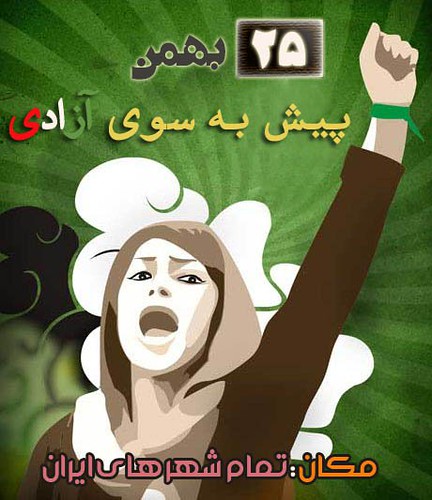 An engineer by training,... Mousavi became editor of the Islamic Republican Party newspaper, which emerged as an influential force for hardline positions during the early years of Ayatollah Khomeini’s reign. In this vein, Mousavi’s newspaper opposed releasing the American hostages, and further served as a platform for the regime’s theocratic dictates – for example, the ban on playing chess.
An engineer by training,... Mousavi became editor of the Islamic Republican Party newspaper, which emerged as an influential force for hardline positions during the early years of Ayatollah Khomeini’s reign. In this vein, Mousavi’s newspaper opposed releasing the American hostages, and further served as a platform for the regime’s theocratic dictates – for example, the ban on playing chess.Following Khomeini’s removal of President Abolhassan Bani-Sadr and the execution of Bani-Sadr’s allies in June 1981, Mousavi joined the new government as Minister of Foreign Affairs. Only four months later, the parliament affirmed Mousavi as Iran’s fifth prime minister – a move that The Globe and Mail interpreted as signaling Tehran’s desire to “expand its world role and ‘export’ its Islamic revolution.”
In this regard, Mousavi didn’t disappoint. During his premiership, Iran founded Hezbollah – a Shiite terrorist group based in southern Lebanon with active cells scattered worldwide. For Mousavi, Hezbollah became an important theocratic weapon: in the aftermath of Khomeini’s infamous fatwa against author Salman Rushdie, Mousavi called on Hezbollah to “take the necessary action,” thereby sending Rushdie into hiding. Mousavi’s government further played a central role in planning the violent 1987 Mecca demonstrations, in which Iranian activists sought to destabilize the Saudi regime and recruit Muslim worshippers to their militant cause.
Moreover, on virtually every major issue of U.S.-Iranian contention, Mousavi assumed a confrontational approach during his eight-year term. Beyond his strong opposition to renewing relations with the United States, Mousavi created Iran’s chemical weapons program – catalyzing a deadly naval standoff between Iran and U.S.-backed Arab Gulf states during the late 1980s. Most alarmingly, a recent International Atomic Energy Agency (IAEA) report stated that Mousavi’s government purchased centrifuges on the black market in 1987, thereby jump-starting the nuclear program that remains at the heart of international concerns regarding Iran today. Mousavi image from Crethi_Plethi ...and more info from Frum Forum

